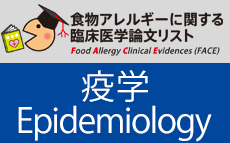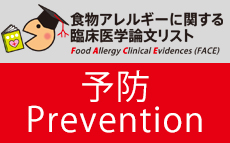The relationship of radiocontrast, iodine, and seafood allergies: a medical myth exposed
更新日:2016年10月21日
| Author: | Schabelman E, Witting M. |
|---|---|
| Title: | The relationship of radiocontrast, iodine, and seafood allergies: a medical myth exposed. |
| Citation: | The Journal of Emergency Medicine. 2010 Nov;39(5):701-7 |
| URL: | https://pubmed.ncbi.nlm.nih.gov/20045605/ |
| Abstract: | BACKGROUND: Radiocontrast agents are some of the most commonly used medications in the emergency department. However, both physicians and patients misunderstand the role that allergies play in reactions to radiocontrast media, especially with regards to shellfish and iodine. OBJECTIVES: We sought to review the literature describing rates of contrast reactions and risk of contrast administration to patients with iodine allergy, shellfish or seafood allergies, or prior reactions to intravenous iodinated contrast. METHOD: Both authors independently performed literature reviews, including position statements of stakeholder organizations, to gain perspective on important issues. They subsequently performed a systematic search for articles that estimated the risk of administration of iodinated contrast to those with a prior history of contrast reaction, "iodine allergy," or reaction to seafood or shellfish. RESULTS: The risk of reactions to contrast ranges from 0.2-17%, depending on the type of contrast used, the severity of reaction considered, and the prior history of any allergy. The risk of reaction in patients with a seafood allergy is similar to that in patients with other food allergies or asthma. A history of prior reaction to contrast increases the risk of mild reactions to as high as 7-17%, but has not been shown to increase the rate of severe reactions. Severe reactions occur in 0.02-0.5% and deaths in 0.0006-0.006%; neither have been related to "iodine allergy," seafood allergy, or prior contrast reaction. Low-osmolality contrast media became available in 1988, and many of the higher risk estimates were from the era before it was widely available. CONCLUSIONS: Iodine is not an allergen. Atopy, in general, confers an increased risk of reaction to contrast administration, but the risk of contrast administration is low, even in patients with a history of "iodine allergy," seafood allergy, or prior contrast reaction. Allergies to shellfish, in particular, do not increase the risk of reaction to intravenous contrast any more that of other allergies. |
| 邦文タイトル: | 準備中 |
| 一般向け要約 | 準備中 |
| 専門医コメント | 準備中 |


